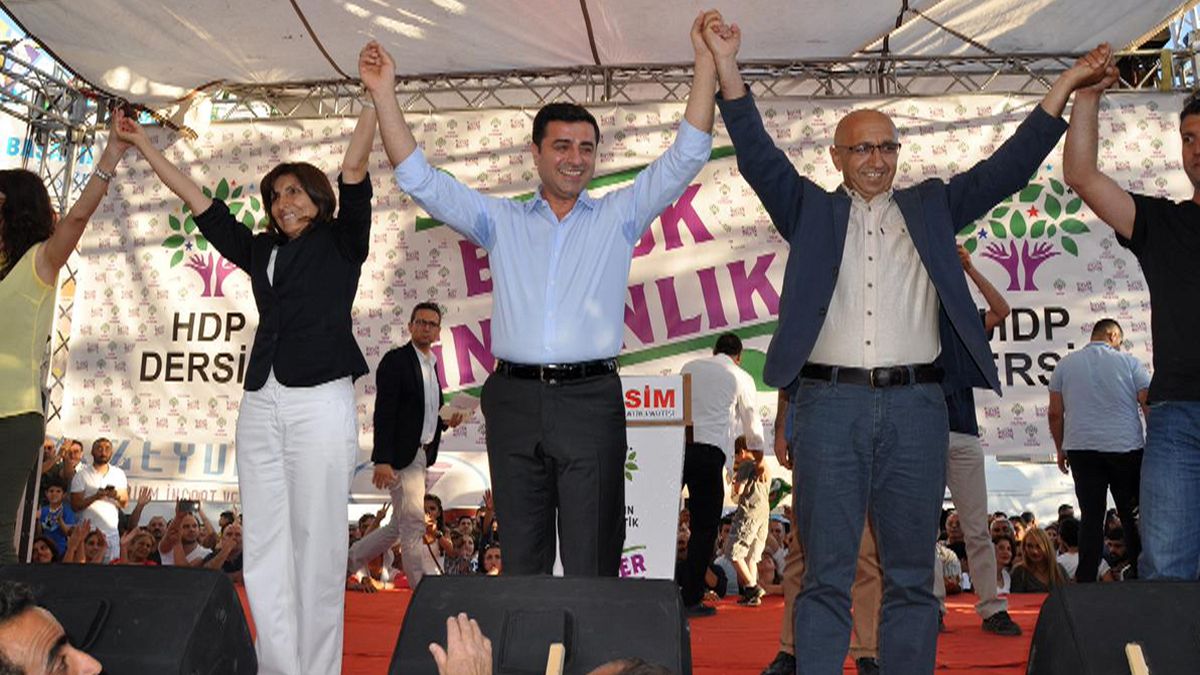Around 14 million Kurds live in Turkey, most of them in cities in the south-east, which are strongholds of the left-wing Peoples’ Democratic Party
Around 14 million Kurds live in Turkey, most of them in cities in the south-east, which are strongholds of the left-wing Peoples’ Democratic Party (HDP).
On June 7th, the stakes are high: if the HDP does not attain 10% of the votes, the threshold to enter parliament, the Kurds will not have any representation.
If the HDP does reach 10%, that will reduce the ruling AK party’s chances of getting the absolute majority it needs in order to push through reform of the presidency, which critics say would concentrate power too much.
The city of Mardin lies on the Silk Road of antiquity, at a crossroads of civilisations, near the border with war-torn Syria. Its many ancient stone houses and its religious heritage make it an important tourist attraction.
Prof. Mithat Sancar, an HDP candidate in the elections, told euronews: “The Kurds want strong representation and a policy of pursuing and defending their rights. They expect this. Off course, the biggest wish is the end of the war [between the PKK and the Turkish state]. They want the peace to be permanent. Kurds want a fair peace and a democratic solution for Kurdish matters.”
Turkey has been engaged with the country’s Kurds since 2012 in a peace process. The leader of the Kurdish rebel organisation the PKK, Abdullah Öcalan, is leading the talks from his prison on Imrali Island, through Kurdish MPs and his relatives.
The AK party has reached out to the Kurds during its 12 years in power, and Kurdish votes have been instrumental in the AKP commanding a large majority in parliament. But this time Kurdish candidates are running in a party list, and no longer independently. That threatens the AKP. But the ruling party candidates have played down the risk of a vote swing to the HDP.
Kurdish AK Party Candidate Orhan Miroglu said: “This region is not a place to be defined as one political entity. The AKP and the HDP have equal power, simply in different cities.”
The Kemalist and social-democratic Republican People’s Party (CHP), is trying not very successfully to expand in Kurdish cities, as is the Turkish nationalist MHP; it says it will not deal with those it calls “terrorists,” but tries to draw a line between pro-PKK and other voters.
If the HDP does not get into parliament, that could undermine the peace process. There are fears there could be a return to violence if people think the elections have been rigged.
Along with peace the Kurds also want more investment in their region.
One Mardin resident said: “Young people expect job creation. Nowhere is unemployment higher than in the southeast. There are no job opportunities. The young demand a good life, brotherhood and peace. That is all.”
Our correspondent visited Mardin ahead of the June 7th poll, the UNESCO-listed World Heritage Site recognised as the “Mardin Cultural Landscape”.
Bora Bayraktar summed up: “Although many Turks think that Kurdish voters are one entity, they’re not. People in this region have different expectations and different choices. This has been reflected in election voting. Those who look at the last 30 years think that a return to violence is highly likely, but the city of Mardin, home to different cultures and identities, gives a different message: this city with its Kurds, Turks, Arabs and Assyrians shows that living together in peace also holds a strong potential.”
